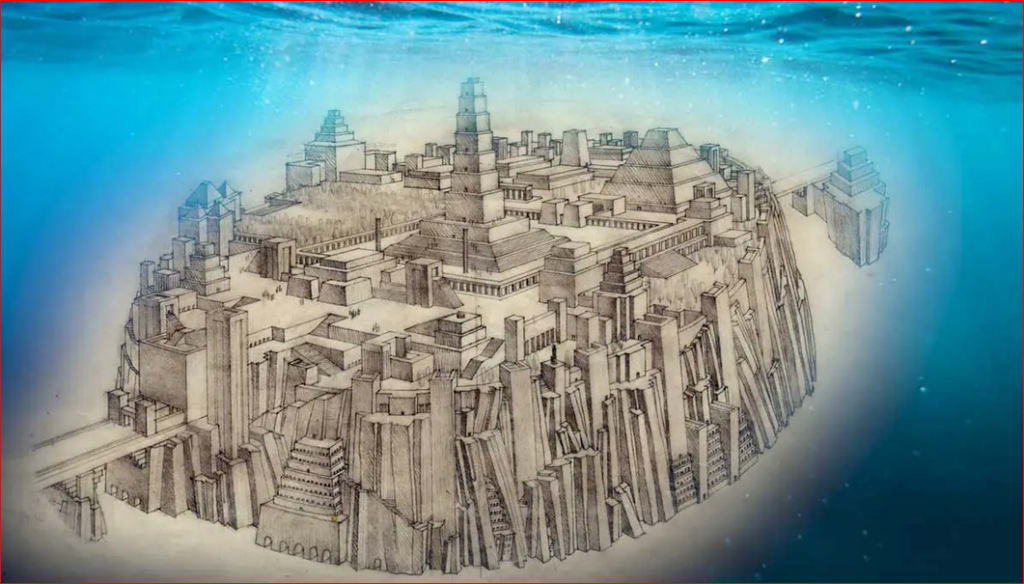Truth about the Lost City of Atlantis
Was Atlantis Real or a Bunch of Old Myths?

Atlantis: the unbelievable island that sank underneath the waves in the far off past, bringing down with it a high level human progress. Is it conceivable that we will at any point track down it? Or then again, more critically: Did it try and exist?
Maybe the most baffling old progress is the one we've never tracked down a hint of. Huh, I'm talking, obviously, about Atlantis, the once-fabulous city that wound up sinking underneath the sea. The main records we have of Atlantis were composed by the old Greek savant, Plato, who discussed an extraordinary city right external the Waterway of Gibraltar. Nonetheless, all in all nothing remained to be said Plato's Atlantis really existed, for centuries, individuals just expected he'd made a visionary rendition of his home, Athens.
All suitable proof demonstrates that the thinker Plato, at some point around 360 B.C., developed the island country to delineate a point about the risks of forceful dominion. In Plato's telling, Atlantis was no perfect world. Rather, it was a foil for a glorified rendition of Athens from well before Plato's time. This old Athens "was basically the same as Plato's thought of the best state," says Jyl Gentzler, a teacher of reasoning at Amherst School. Plato spread out the subtleties for what such a state would resemble in his well known work, The Republic.
So how can it be that around 12,000 years after supposedly vanishing, we actually discuss it like it very well may be genuine? Indeed, in 1882, US Representative Ignatius Donnelly distributed 13 justifications for why he accepted Atlantis was undeniably more genuine than recently represented. Furthermore, no, he didn't spread them around on little tapes. He composed a book called "The Antediluvian World", which ended up being exceptionally powerful. Then, at that point, in 1965, somebody really tracked down Atlantis.
As per Donnelly, Atlantis was the first wellspring of numerous old civic establishments all over the planet. Assuming that one followed the signs in Plato's composition, Donnelly accepted, humankind might have tracked down Atlantis. "It would be difficult to exaggerate the effect that this starting section to Donnelly's book had on future Atlantology," composed Imprint Adams in his 2015 book, Meet Me in Atlantis: Across Three Landmasses Looking for the Amazing Depressed City. "It gave this kind of format that individuals could begin to continue in a very long time to come," he says.
Donnelly was motivated, says Adams, by an exceptional revelation in the mid 1870s. A novice excavator had utilized Homer's The Iliad to uncover the incredible city of Troy purportedly. In the event that Troy, long remembered to be fictitious, was genuine, is there any good reason why Atlantis shouldn't be, as well?
In the years after Columbus took insight about the New World back to Europe, many guaranteed that America was the legendary Atlantis. Be that as it may, the pursuit truly built up some decent forward momentum in the twentieth and 21st hundreds of years.
A few searchers have highlighted a volcanic ejection that obliterated pieces of the island of Santorini around 1600 B.C., clearing out Minoan settlements. Furthermore, in 2018, a group declared, to much pomp, that they had found "substantial verification that Atlantis existed." Key proof remembered a progression of circles for a public park in Spain. They ended up being exploratory lakes made in 2004 and 2005 for a review including zooplankton.
Indeed, certain individuals figure they did, in any event. This is the Richat structure, a 25 expansive land vault tracked down in Mauritania, Africa. I'm completely serious, this thing is so gigantic you can see its full degree from space, which is the way things were found. Two space travelers flying over the Sahara Desert had detected the goliath eye gazing back at them and thought they'd coincidentally found
the main archeological find of all time. Unfortunately, there's nothing concrete connecting it to Atlantis. It's accepted the Richat structure was shaped from volcanic movement around 100-million-quite a while back. Be that as it may, hey now, it looks pretty dubious. Appears as though we're no nearer to reality. What is your take? Is Atlantis genuine, or a lot of old baloney?
About the Creator
Frank Schulz
I have an insatiable curiosity for the wonders of science, the depths of history, and the intricate tapestry of human interest subjects. I immerse myself in the captivating worlds of discovery and understanding.
Enjoyed the story? Support the Creator.
Subscribe for free to receive all their stories in your feed. You could also pledge your support or give them a one-off tip, letting them know you appreciate their work.





Comments
Frank Schulz is not accepting comments at the moment
Want to show your support? Send them a one-off tip.